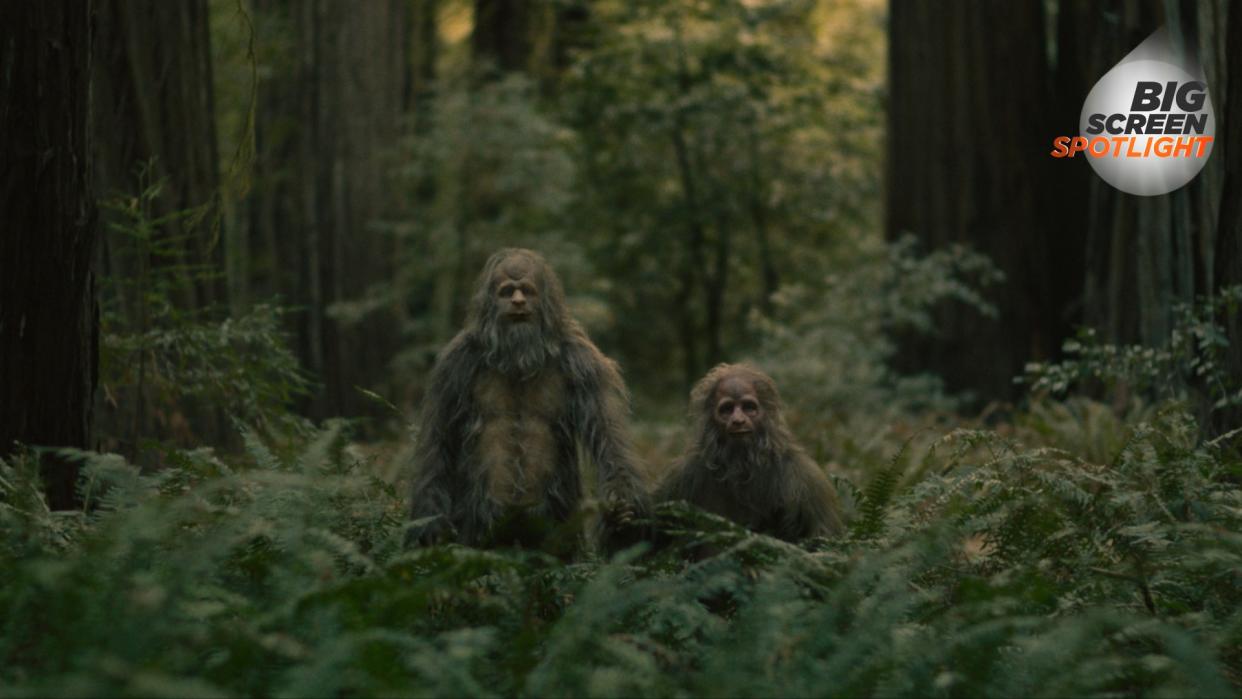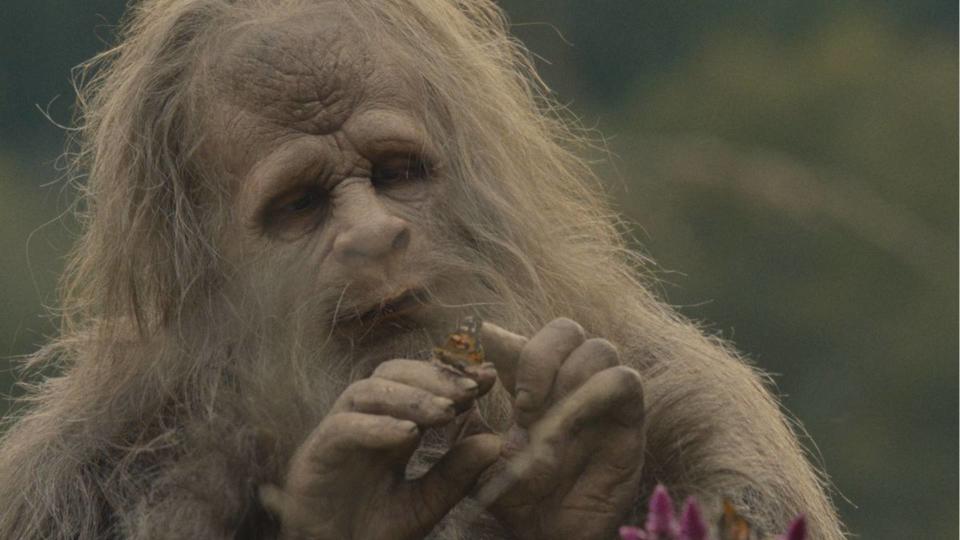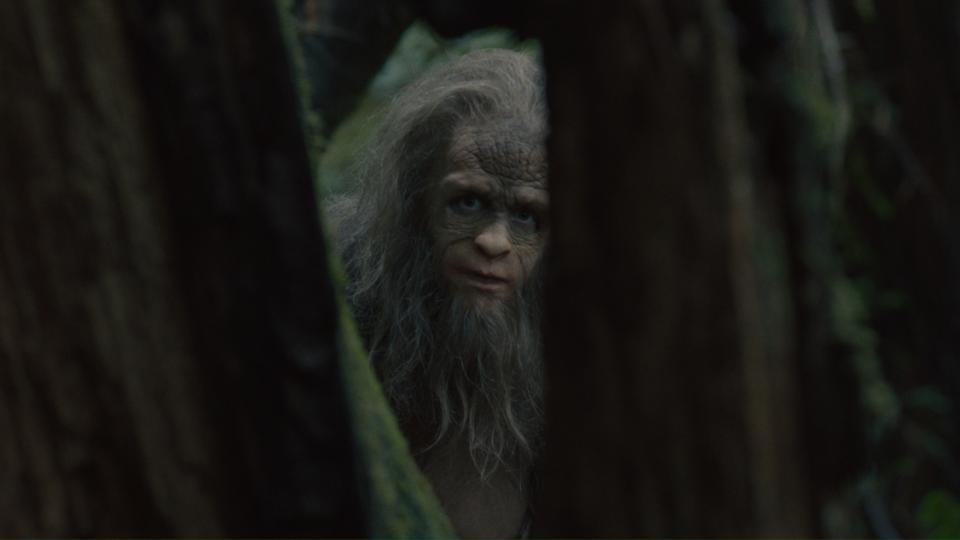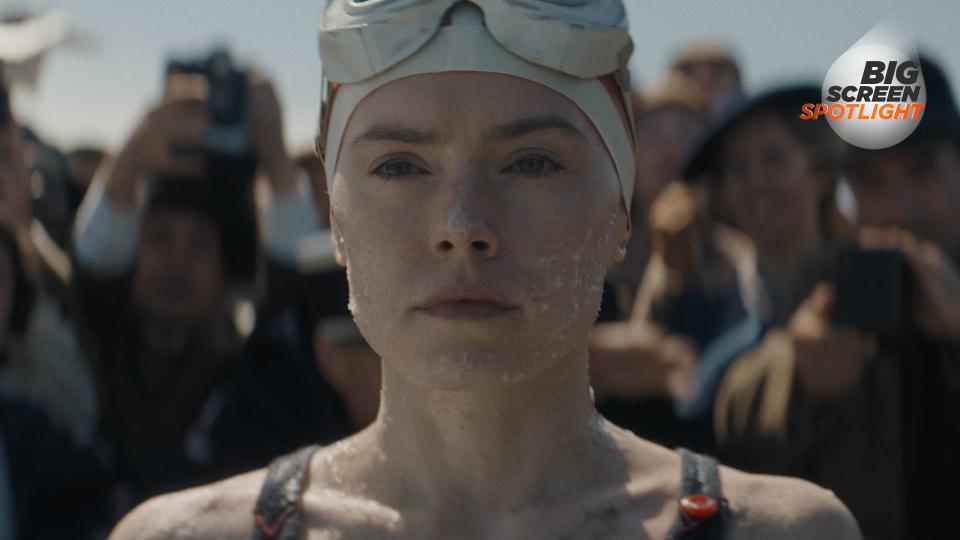A wacky Bigfoot comedy starring Jesse Eisenberg and executive produced by Ari Aster might actually be one of this year's most touching movies

Sasquatch Sunset is an unconventional movie. The only characters are sasquatches, who spend their days mating, scratching their crotches, and beating trees with sticks. There's no dialogue, either: the creatures grunt, whine, and yell, but they don't speak. But patience is a virtue, and what starts out as a crass comedy with as much subtlety as you can expect from scenes of extended urination and defecation suddenly shifts gears around halfway through and becomes something much softer and more poignant.
The film's central family makes a lonely picture from the get-go as the small tribe of four makes their way across vast North American plains, forests, and mountains. There's the pack's alpha male (played by co-director Nathan Zellner), another male (Jesse Eisenberg), a female (Riley Keough), and her child (Christophe Zajac-Denek).
The movie documents a year in the group's life, starting in the spring and ending the following winter. The lack of dialogue means that it's often unclear what they're doing, or why – or whether they even have the answers to those questions themselves. Co-director David Zellner previously worked on The Curse, a satirical dark comedy series starring Nathan Fielder and Emma Stone, and Hereditary and Beau is Afraid director Ari Aster is an executive producer, so there's a deadpan, absurd quality to Sasquatch Sunset.
Survival of the fittest

To begin with, we also don't really know when the film takes place. As the sasquatches travel on their journey, moving between habitats as the seasons change, it could be prehistoric times, a post-apocalyptic future, or anywhere in between. Eventually, though, we realize that the setting is a little more familiar when the group discovers a tarmac road on the edge of a forest. They're so overwhelmed by their discovery that they urinate (and defecate - and lactate, in the case of Keough's female) all over it.
Big Screen Spotlight
Shining a light on the under-the-radar theatrical releases that you need to know about, with a new article every Friday
Street smarts, then, are not their forte – or at least not for the males of the group. Although their lives are at the mercy of their natural environment, they don't seem very adept at staying alive in the wilderness. Propelled forward by hubris, lust, and downright stupidity, it's only the female who shows any penchant for survival. This extends to an instinctual desire to protect her child (and her unborn baby), and when she emerges from the shadow of the males we see a tenderness that feels at odds with what's come before.
We start to notice that the sasquatches have some strikingly human features: the child plays pretend, amusing himself with his imagination, and the group has (spoiler) its own funeral ritual, twisting long blades of grass into shapes and laying them on top of a grave.
Human nature

While the scene on the road relies a little too heavily on bodily fluids to provoke much of an emotional response, other traces of modern human life later in the film prompt much more poignant responses. Towards the end, the female and the child stumble across an empty campsite, tent and supplies temporarily abandoned in the woods while their owners amuse themselves elsewhere. The pair are initially drawn to the snacks and candy left behind by the tourists, until the female gets her paws on a cassette player with a tape inside. Hitting play, the sound of pop music reduces her to tears. Overcome with new and unknown emotion, she starts to trash the site, destroying everything in reach.
Big Screen Spotlight

As a harsh winter encroaches and even the most savvy sasquatch mother would struggle to keep her family in one piece, their strive to keep going becomes even more touching. Sasquatch Sunset is, ultimately, a tale of survival in the face of a world working against you. By the end of the movie, we find ourselves rooting for the group through it all – despite their habit for expelling bodily fluids and making questionable choices (including, but not limited to, trying to mate with an apex predator). The movie's closing scene, involving the mother, her child, and her newborn baby, only serves to compound what we've seen so far: the sasquatches are maybe the only remnants of a lonely, dying species, possibly the last of their kind, with their cries echoing, unheard, in an unwelcoming world.
Sasquatch Sunset premieres in the UK at Sundance London on June 8 and 9, before arriving in cinemas on June 14. For more on what else you should be watching at the cinema, be sure to check out the rest of our Big Screen Spotlight series.

 Yahoo News
Yahoo News 
